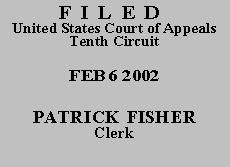

| UNITED STATES OF AMERICA,
Plaintiff-Appellee, v. JAVIER ENRIQUE BARRIENTOS-SOLIS, Defendant-Appellant. |
|
Defendant Javier Barrientos-Solis appeals his ninety-two month sentence, imposed after a jury convicted him of violating 8 U.S.C. § 1326(a), (b)(2) (illegal reentry into the United States after arrest and deportation, and after having been convicted of an aggravated felony without reapplying for admission and without the consent of the Attorney General).
On appeal, Mr. Barrientos-Solis argues that he was entitled to a three-level reduction from his base offense level for acceptance of responsibility, pursuant to § 3E1.1 of the United States Sentencing Guidelines. Under § 3E1.1(a), "[i]f the defendant clearly demonstrates acceptance of responsibility for his offense," the district court shall "decrease the offense level by 2 levels." Additionally, if the defendant qualifies for a reduction under subsection (a), and the offense level before that reduction is level sixteen or greater, "and the defendant . . . timely provid[es] complete information to the government concerning his own involvement in the offense," the court shall "decrease [the offense level] by 1 additional level." USSG § 3E1.1(b).
Acceptance of responsibility involves "truthfully admitting the conduct comprising the offense(s) of conviction." Id., cmt. n.1(a). Conviction by trial "does not automatically preclude a defendant from consideration for such a reduction." Id., cmt. n.2. "In rare situations a defendant may clearly demonstrate an acceptance of responsibility for his criminal conduct even though he exercises his constitutional right to a trial:" for example, he may go "to trial to assert and preserve issues that do not relate to factual guilt." Id.; see also United States v. Garcia, 182 F.3d 1165, 1172 (10th Cir. 1999).
Here, Mr. Barrientos-Solis claims he was entitled to the full three-point reduction because he had accepted responsibility in a pre-trial statement. Because defendant did not seek the § 3E1.1 reduction and did not object to the district court's failure to grant it sua sponte, our review is for plain error. United States v. Jones, 80 F.3d 436, 438 (10th Cir. 1996). Under the plain error rule, a defendant must show clear or obvious error affecting his substantial rights, and seriously affecting the integrity of the judicial proceedings. Id.
According to the Presentence Report (PSR), Mr. Barrientos-Solis submitted a statement to the probation office in which he admitted that he was not from the United States and that he was in the country illegally. The probation officer authoring the PSR considered this account "a complete statement accepting responsibility." See R. Vol. II, at 4. On the other hand, Mr. Barrientos-Solis put the government to its burden of proof by denying the essential factual elements of his guilt and proceeding to trial. "Pleading not guilty and requiring the government to prove guilt at trial demonstrate denial of responsibility, regardless of how easily the government can prove guilt." United States v. Portillo-Valenzuela, 20 F.3d 393, 394-95 (10th Cir. 1994).
At the very least, Mr. Barrientos-Solis' inconsistent pre-trial and trial conduct required factual findings on the issue of whether he clearly accepted responsibility for his offense. See United States v. Gauvin, 173 F.3d 798, 805 (10th Cir. 1999) (stating that the "determination of acceptance of responsibility is a question of fact"). Defendant's failure to raise the issue earlier, however, deprived the district court of the opportunity to make the essential factual findings. Under these circumstances, we conclude that the district court did not commit plain error in sentencing Mr. Barrientos-Solis.
The judgment of the district court is AFFIRMED.
Entered for the Court
Senior Circuit Judge
*. This order and judgment is not binding precedent, except under the doctrines of law of the case, res judicata, and collateral estoppel. The court generally disfavors the citation of orders and judgments; nevertheless, an order and judgment may be cited under the terms and conditions of 10th Cir. R. 36.3.